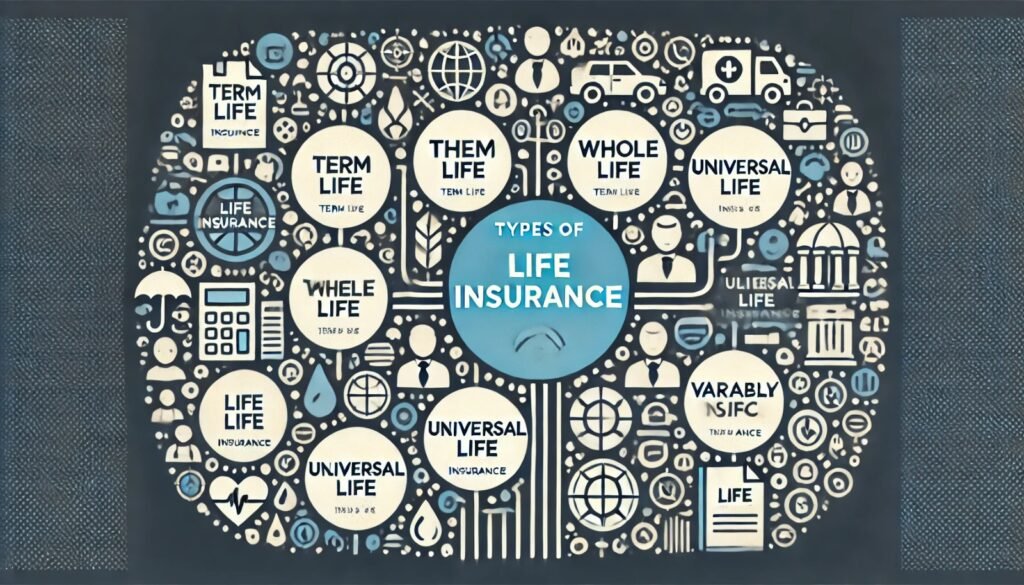The Need for Insurance (and Understanding It)
Imagine this: a sudden illness, a car accident, a house fire… Life is full of unexpected events that can have significant financial implications. This is where the importance of having a safety net comes into play. Insurance serves as that crucial safety net, helping to mitigate financial risks and providing peace of mind in times of uncertainty.
Insurance is a contract in which an individual or entity receives financial protection or reimbursement against losses from an insurance company. The company pools clients’ risks to make payments more affordable for the insured. Understanding the various types of insurance available is essential for making informed decisions about which policies best suit your needs.
The purpose of this blog post is to provide a clear, comparative overview of different insurance types. This comprehensive guide will compare various types of insurance, helping you understand the benefits and drawbacks of each. By the end of this article, you’ll have a better grasp of which insurance policies are essential for your specific situation.
Common Types of Insurance (And Who They’re For)
Understanding the different types of insurance available can help you choose the right policies for your needs. Here, we will break down the most common types of insurance, providing clear definitions, explaining the coverage, identifying who needs it, and illustrating with real-life examples.
Health Insurance
Definition:
Health insurance is a type of insurance coverage that pays for medical and surgical expenses incurred by the insured. It can also cover other health-related expenses such as prescription drugs and preventive care.

Coverage:
Typically, health insurance covers doctor visits, hospital stays, surgeries, prescription medications, and preventive care like vaccinations and screenings.
Who Needs It:
Everyone can benefit from health insurance, but it is especially crucial for families, individuals with chronic conditions, and those who want to avoid high medical costs.
Example: Imagine you suddenly fall ill and need surgery. Without health insurance, the cost could be overwhelming. With health insurance, a significant portion of the expenses would be covered, reducing your financial burden.
Life Insurance
Definition:
Life insurance is a contract between an insurer and a policyholder, where the insurer guarantees payment of a death benefit to named beneficiaries upon the death of the insured.
Coverage:
Life insurance typically covers the financial needs of the insured’s dependents, such as funeral costs, debts, and living expenses.
Who Needs It:
Life insurance is essential for individuals with dependents, such as parents, spouses, and anyone who wants to ensure their loved ones are financially protected in the event of their death.
Example:
Consider a family where one parent is the primary breadwinner. If that parent were to pass away unexpectedly, life insurance would provide financial support to the surviving family members, helping them maintain their standard of living.
Auto Insurance
Definition:
Auto insurance is a policy purchased by vehicle owners to mitigate costs associated with getting into an auto accident or incurring vehicle damage.
Coverage:
Auto insurance typically covers property damage, liability, and medical expenses resulting from vehicle-related incidents.
Who Needs It:
Anyone who owns or drives a vehicle needs auto insurance. It is often legally required and provides financial protection in case of accidents.
Example:
If you are involved in a car accident, auto insurance can cover the repair costs for your vehicle and medical expenses for any injuries sustained, protecting you from significant out-of-pocket expenses.
Home Insurance
Definition: Home insurance,
also known as homeowner’s insurance, is a type of property insurance that covers losses and damages to an individual’s house and assets in the home.
Coverage:
Home insurance typically covers damage to the home, personal property, and liability for accidents that occur on the property.
Who Needs It:
Homeowners and landlords need home insurance to protect their property and assets from potential risks such as fire, theft, and natural disasters.
Example:
If a fire damages your home, home insurance can cover the repair costs and replace damaged belongings, helping you recover without facing severe financial hardship.
Factors to Consider When Choosing Insurance
Choosing the right insurance policy can be a daunting task, but understanding the key factors to consider can help you make an informed decision. It’s essential to go beyond the basics and evaluate various aspects to ensure you select a policy that best suits your needs. Here are some critical factors to keep in mind:
Budget
One of the first things to consider is your budget. How much can you afford to pay in premiums? It’s crucial to find a balance between the cost of the insurance and the coverage it provides. While it might be tempting to opt for the cheapest policy, it may not offer adequate protection. Conversely, a more expensive policy might provide comprehensive coverage but could strain your finances.
Coverage Needs
Assess your coverage needs by identifying the risks that are most important to you. Different types of insurance offer varying levels of protection. For instance, if you live in an area prone to natural disasters, you might need additional coverage for those specific risks. Make a list of your priorities and ensure the policy you choose addresses them adequately.
Deductibles and Out-of-Pocket Costs
Understanding the deductibles and out-of-pocket costs associated with an insurance policy is essential. A deductible is the amount you pay out of pocket before your insurance kicks in. Policies with lower premiums often have higher deductibles, meaning you’ll pay more in the event of a claim. Conversely, higher premium policies usually have lower deductibles. Consider the trade-offs and choose a policy that aligns with your financial situation and risk tolerance.
Claim Process
The ease of the claim process is another crucial factor. How easy is it to file a claim with the insurance provider? Look for reviews and testimonials from other policyholders to gauge their experiences. A smooth and efficient claim process can make a significant difference during stressful times when you need to file a claim.
Insurance Provider Reputation
Finally, consider the reputation of the insurance provider. Are they reliable and trustworthy? Research the company’s history, financial stability, and customer service record. A reputable insurance provider is more likely to honor claims and provide the support you need. You can check ratings and reviews from independent agencies and consumer reports to get a better understanding of the provider’s reliability.
Tips for Getting the Best Insurance Rates
Shop Around and Compare Quotes
It’s essential to shop around and compare quotes from different insurance providers. Prices can vary significantly, and comparing quotes can help you find the best deal. Don’t settle for the first quote you receive; take the time to explore your options.
Maintain a Good Credit Score
Your credit score can have a significant impact on your insurance premiums. Insurance companies often use credit scores to assess risk, and a higher score can lead to lower premiums. Make sure to pay your bills on time, reduce debt, and monitor your credit report regularly to maintain a good score.
Bundle Insurance Policies
Consider bundling your insurance policies with the same provider. Many insurance companies offer discounts if you purchase multiple policies, such as home and auto insurance, from them. Bundling can lead to substantial savings.
Ask About Discounts
Don’t hesitate to ask about discounts that you may be eligible for. Insurance providers often offer various discounts, such as safe driver discounts, loyalty programs, and discounts for installing safety devices in your home or car. Inquire about all possible discounts to reduce your premiums.
Review Your Policy Regularly
It’s important to review your policy regularly to ensure it still meets your needs. Life circumstances can change, and your insurance coverage should reflect those changes. Regularly reviewing your policy can help you make necessary adjustments and avoid being underinsured or overpaying for coverage you no longer need.
For more detailed information on choosing the right insurance policy, you can visit Nerd Wallet’s guide on how to choose insurance.

